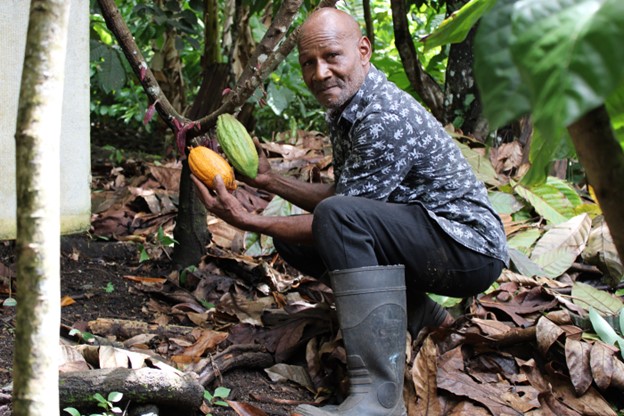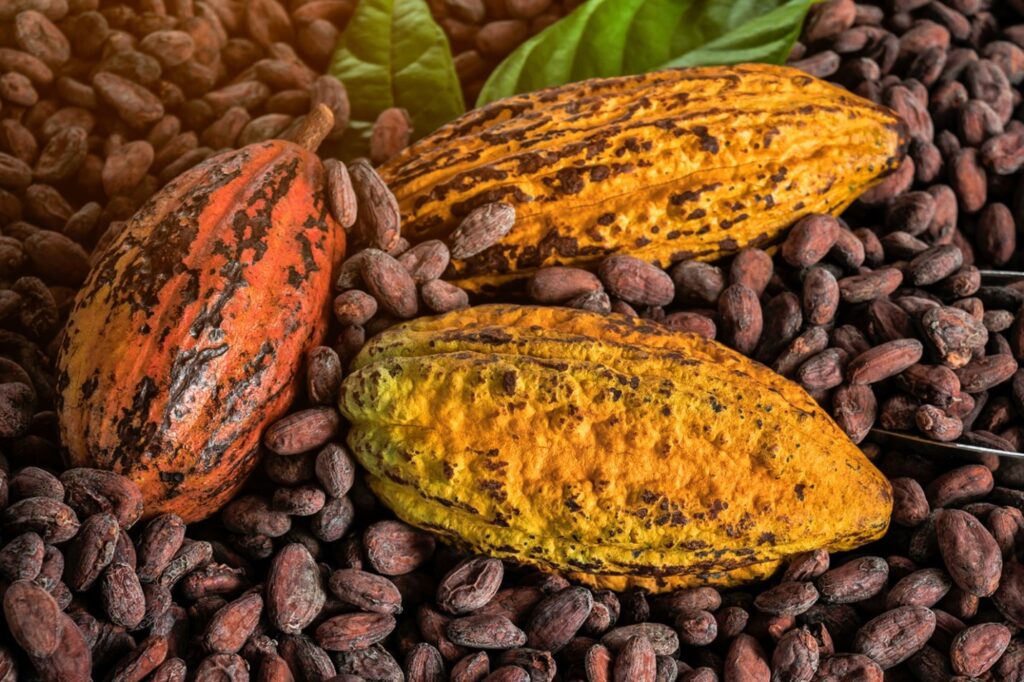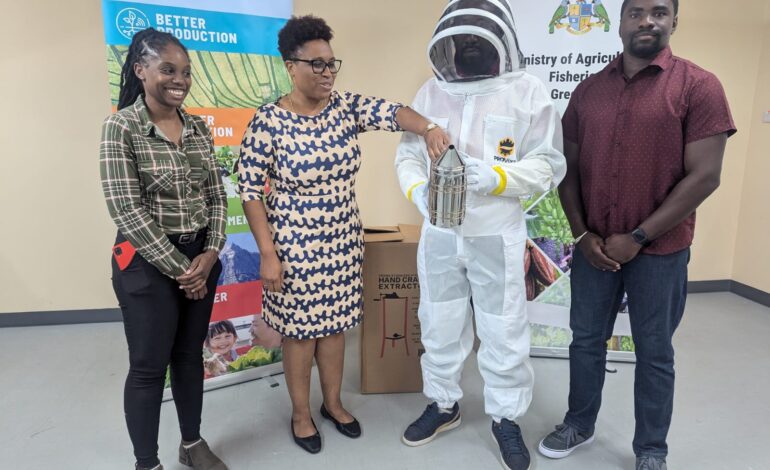
Derived from its Greek name Theobroma Cacao, which translates to “Food of the Gods,” cocoa has been intricately woven into the tapestry of the Caribbean Island of Saint Lucia since its arrival in the 1660s. From a steaming cup of hot cocoa and tasty marinades to delectable chocolates, its versatility has no bounds.
Cocoa tea, for example, is an island tradition that spans generation. Over time, Saint Lucians have perfected the art of making it with freshly ground cocoa sticks and fresh spices like nutmeg, cinnamon and bay leaf.
During the peak period of the banana industry in the 1960’s, cocoa found itself playing second fiddle. Prior to 1993, bananas from African, Caribbean and Pacific countries had preferential access to markets in the European Union because of special policies that favoured bananas from former colonies. However, there were significant modifications to the trade agreement in the early 2000s.
Year later, the banana industry in Saint Lucia all but collapsed.
“The cocoa industry has been through its ups and downs, but we are on the up again,” exclaimed Cuthbert Monrocq, a local cocoa expert and farmer. His face beamed with pride as he reflects on the resurgence of the cocoa industry.
Cuthbert has been a cocoa farmer for 24 years. He started out as a labourer on a local farm, but over the years not only did his knowledge of the industry grow, so did his entrepreneurial skills.
He presently owns Montuzuma Family Estate – 9.5 acres of farmland – where he grows mushrooms and vegetables and conducts agro-tourism tours on his farm. His main crop though is cacao.
Cuthbert has been up since 3:30 am, and like most mornings, he starts the day armed with a cup of steamy cocoa tea. His 67-year-old youthful stride takes him across his lush, sprawling farm, as the sun peeps through his giant cocoa trees.

Cuthbert has been farming cocoa for over 24 years. FAO tapped into his knowledge to run workshops aimed at revitalizing the cocoa industry on the island. ©FAO/Leshan Monrose
He explains that he started cocoa farming in 2000 and prides himself on employing sustainable and eco-friendly farming techniques. His stock of trees also provides grafting material, the preferred method for propagating cocoa, to ensure the sustainability of the industry.
Cuthbert then worked with local farmers to help their propagation of cocoa plants, maintaining a supply of the product to a hotel chain that is the largest cocoa market on the island.
In 2018, Cuthbert set up an organization in his community to train young farmers. His passion for the industry ran so deep that he moved out of his home with the goal of converting it into a processing facility for the group. While the remodelling was in progress, he lived in a small 15 feet x 24 feet structure, typically used for storage, on his farm.
Given his vast experience and knowledge of the cocoa industry, the Food and Agriculture Organization of the United Nations (FAO) together with the Ministry of Agriculture in Saint Lucia sought out Cuthbert’s expertise when organizing a workshop to revitalize the cocoa industry on the island.
The workshop trained over 40 farmers, agro-processors and extension officers in best practices for cocoa production and processing. Farmers learned about integrated pest management, such as identifying pests and diseases, sanitary pruning, designing proper drainage to manage moisture and appropriate treatments.
They also learned about tools and techniques for harvesting, proper methods for opening pods and extracting seeds, the stages and signs of fermentation and finally the drying and storage of cocoa beans to prevent losses.
“I am honoured and humbled. I worked as an Extension Officer with the Ministry of Agriculture from 1983 to 2010, so to be invited to participate in this workshop makes me feel great,” Cuthbert exclaimed.
“What I enjoyed the most was witnessing the participant’s understanding of the differences in tastes and smells when they experienced the various chocolate—from bitter to sweet tastes, and sharp vinegar scents to fruity, floral and deep chocolate fragrances.”
“Our cocoa is one of the best in the world and perfect for making rich chocolate, it presents a golden opportunity to be a major revenue earner for Saint Lucia along with empowering young people to get into cocoa farming,” Cuthbert remarked.
Saint Lucia is one of the top 23 producers of premium cocoa in the world. With the international market for this product growing rapidly, there is huge potential for Saint Lucia’s farmers. ©FAO
Saint Lucia is one of the top nine exporters of 100 percent fine or flavourful cocoa with the United Kingdom as its main market. It is also one of the top 23 producers of premium cocoa in the world, according to the International Cocoa Organization, which rated the island’s chocolate as exceptional.
The international market for cocoa is growing rapidly due to the rising demand for premium chocolate products, such as bean-to-bar, organic and single-origin chocolate.
This market boom means that cocoa can command premium prices on international markets, implying huge potential for Saint Lucia’s farmers.
The FAO training is helping cocoa farmers on the island position themselves to take advantage of this opportunity. All 43 of the training participants highly rated the workshop, and roughly 90 percent felt that they improved in all areas of cocoa production from agronomy, harvesting, fermentation and storage.
As the sun sets on his cocoa farm, Cuthbert ends the day like he began it, with a cup of cocoa, assured that more and more people will get to enjoy the wonderful chocolate from his island home.
The Right to Food is a universal human right. This year, we are advocating for that and more. The foods that feed us need to take into account diversity, nutrition, affordability, accessibility as well as safety and sustainability. Over 2.8 billion people are still unable to afford a healthy diet. As we move toward World Food Day on October 16, FAO is emphasizing that the right to the foods, which meet all of these pillars, is crucial for a better life and a better future for all.
Written by: Marquita Sugrim, National Communications Consultant, Barbados and the OECS The Food and Agriculture Organization of the United Nations (FAO













